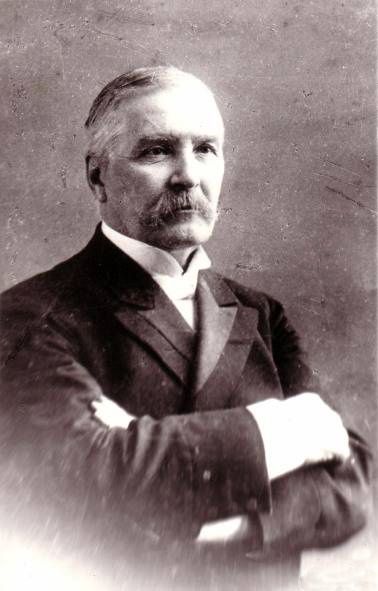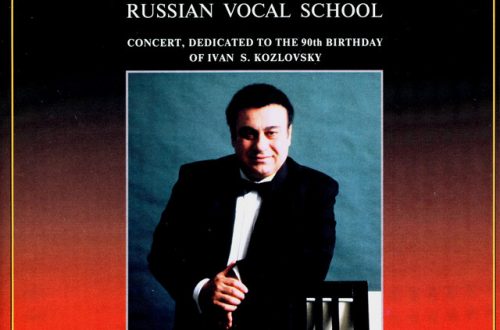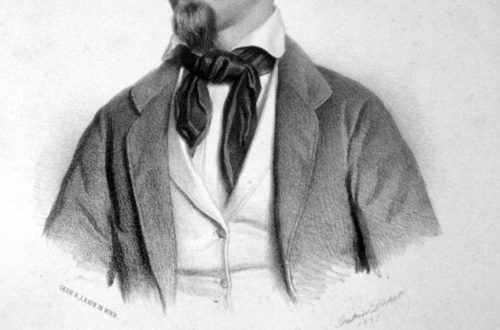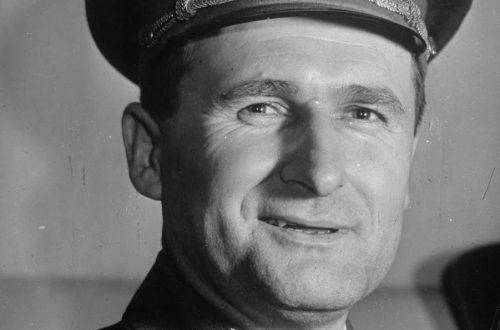
Nikolay Vitalyevich Lysenko (Mykola Lysenko) |
Mykola Lysenko
N. Lysenko devoted his versatile activity (composer, folklorist, performer, conductor, public figure) to serving the national culture, he was the founder of the Ukrainian composer school. The life of the Ukrainian people, their original art were the soil that nurtured Lysenko’s talent. His childhood passed in the Poltava region. The play of wandering ensembles, the regimental orchestra, home musical evenings, and most of all – folk songs, dances, ritual games in which the boy participated with great enthusiasm – “all that rich material was not in vain,” Lysenko writes in his autobiography, ” as if drop by drop of healing and living water fell into the young soul. The time has come for work, it remains to translate that material into notes, and it was no longer someone else’s, since childhood it was perceived by the soul, mastered by the heart.
In 1859, Lysenko entered the Faculty of Natural Sciences of Kharkov, then Kyiv University, where he became close to the radical students, plunged headlong into musical and educational work. His satirical opera-pamphlet “Andriashiada” caused a public outcry in Kyiv. In 1867-69. Lysenko studied at the Leipzig Conservatory, and just as the young Glinka, while in Italy, realized himself as a fully Russian composer, Lysenko in Leipzig finally strengthened his intention to devote his life to serving Ukrainian music. He completes and publishes 2 collections of Ukrainian folk songs and begins work on the grandiose (83 vocal compositions) cycle “Music for the Kobzar” by T. G. Shevchenko. In general, Ukrainian literature, friendship with M. Kotsyubinsky, L. Ukrainka, I. Franko were a strong artistic impulse for Lysenko. It is through Ukrainian poetry that the theme of social protest enters his work, which determined the ideological content of many of his works, starting with the choir “Zapovit” (at Shevchenko station) and ending with the song-anthem “The Eternal Revolutionary” (at Franko station), which was first performed in 1905, as well as the opera “Aeneid” (according to I. Kotlyarevsky – 1910) – the worst satire on the autocracy.
In 1874-76. Lysenko studied in St. Petersburg with N. Rimsky-Korsakov, met with members of the Mighty Handful, V. Stasov, devoted a lot of time and effort to work in the Music Department of the Salt Town (the place of industrial exhibitions, concerts were held there), where he led an amateur choir for free. The experience of Russian composers, assimilated by Lysenko, turned out to be very fruitful. It allowed at a new, higher professional level to carry out an organic fusion of national and pan-European stylistic patterns. “I will never refuse to study music on the great samples of Russian art,” Lysenko wrote to I. Franko in 1885. The composer did a great job of collecting, studying and promoting Ukrainian folklore, seeing in it an inexhaustible source of inspiration and skill. He created numerous arrangements of folk melodies (over 600), wrote several scientific works, among which the most significant is the essay “Characteristics of the musical features of Little Russian thoughts and songs performed by the kobzar Veresai” (1873). However, Lysenko always opposed narrow ethnography and “Little Russian”. He was equally interested in the folklore of other nations. He recorded, processed, performed not only Ukrainian, but also Polish, Serbian, Moravian, Czech, Russian songs, and the choir led by him had in its repertoire the professional music of European and Russian composers from Palestrina to M. Mussorgsky and C. Saint-Saens. Lysenko was the first interpreter in Ukrainian music of the poetry of H. Heine, A. Mickiewicz.
Lysenko’s work is dominated by vocal genres: opera, choral compositions, songs, romances, although he is also the author of a symphony, a number of chamber and piano works. But it was in vocal music that the national identity and the author’s individuality were most clearly revealed, and Lysenko’s operas (there are 10 of them, not counting the youth ones) marked the birth of Ukrainian classical musical theater. The lyrical comic opera Natalka-Poltavka (based on the play of the same name by I. Kotlyarevsky – 1889) and the folk musical drama Taras Bulba (based on the novel by N. Gogol – 1890) became the pinnacles of operatic creativity. Despite the active support of Russian musicians, especially P. Tchaikovsky, this opera was not staged during the composer’s lifetime, and the audience got acquainted with it only in 1924. Lysenko’s social activity is multifaceted. He was the first to organize amateur choirs in Ukraine, traveled to cities and villages with concerts. With the active participation of Lysenko in 1904, a music and drama school was opened in Kyiv (since 1918, the Music and Drama Institute named after him), in which the oldest Ukrainian composer L. Revutsky was educated. In 1905, Lysenko organized the Bayan Society, 2 years later – the Ukrainian Club with musical evenings.
It was necessary to defend the right of Ukrainian professional art to national identity in difficult conditions, contrary to the chauvinistic policy of the tsarist government, aimed at discriminating against national cultures. “There was no special Little Russian language, there is not and cannot be,” said the circular of 1863. Lysenko’s name was persecuted in the reactionary press, but the more active the attacks became, the more support the composer’s undertakings received from the Russian musical community. The tireless selfless activity of Lysenko was highly appreciated by his compatriots. The 25th and 35th anniversaries of Lysenko’s creative and social activities have turned into a great celebration of national culture. “The people understood the greatness of his work” (M. Gorky).
O. Averyanova





